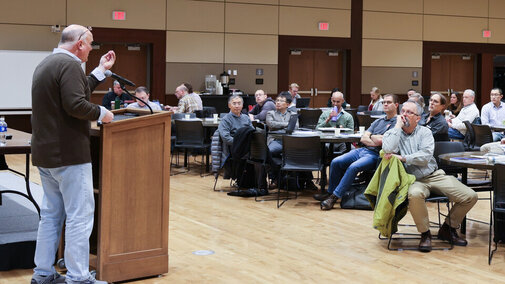A Husker conference co-sponsored with NASA has kickstarted the effort to create multi-institution partnerships to help the Midwest address climate-related concerns such as drought, extreme wind events and floods.
Scientists from multiple states and NASA met at the University of Nebraska–Lincoln for the Harnessing the Heartland conference Feb. 26-28 to hear from a range of Midwest stakeholders about their climate-related concerns. Attendees then brainstormed ways that universities, NASA and the private sector can work together to promote climate sustainability in the region.
Conferees followed up with sessions at the University of Nebraska Medical Center to develop ideas to address climate-related environmental health needs.
The initiative aims to “bring together the best and brightest from across all sectors to help gather around the topic of climate resilience research, to produce actionable information and inform decision-making at all levels,” said Robert Swap, associate division director for mission planning for NASA’s Earth Science Division. “Improving people’s livelihoods and the understanding of the weather” is another key focus.
“It’s incredibly important to work across the region on areas that are of critical importance,” said Jeanette Thurston, executive director of the North Central Regional Association of State Agricultural Experimental Station Directors. “By working across institutions, this effort can leverage their different expertise and resources to produce products and solutions to the problems we’re facing in the heartland due to climate change.”
The initiative isn’t a top-down approach, Swap said, but instead develops its strategies from input from Midwest residents, communities and institutions.

